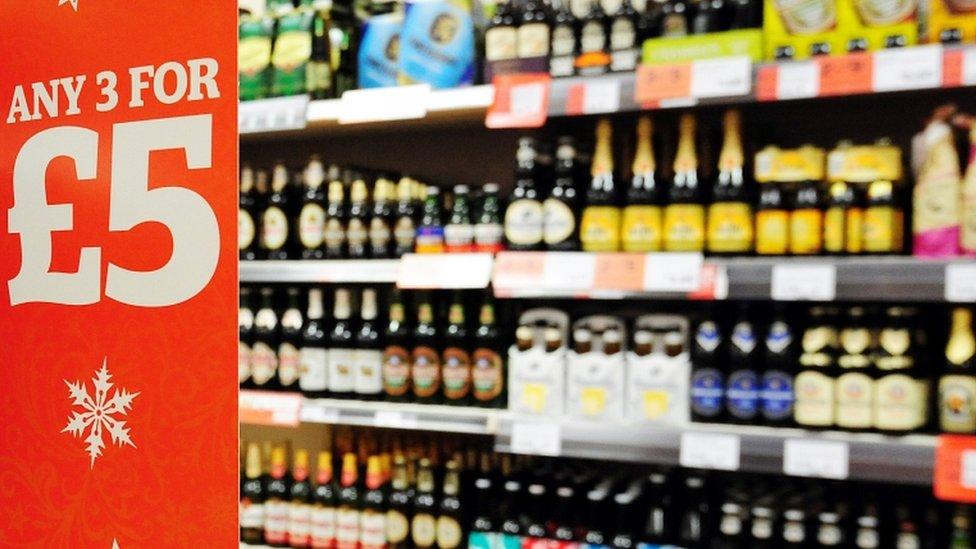Supermarket alcohol cost up 18% under minimum pricing
- Published
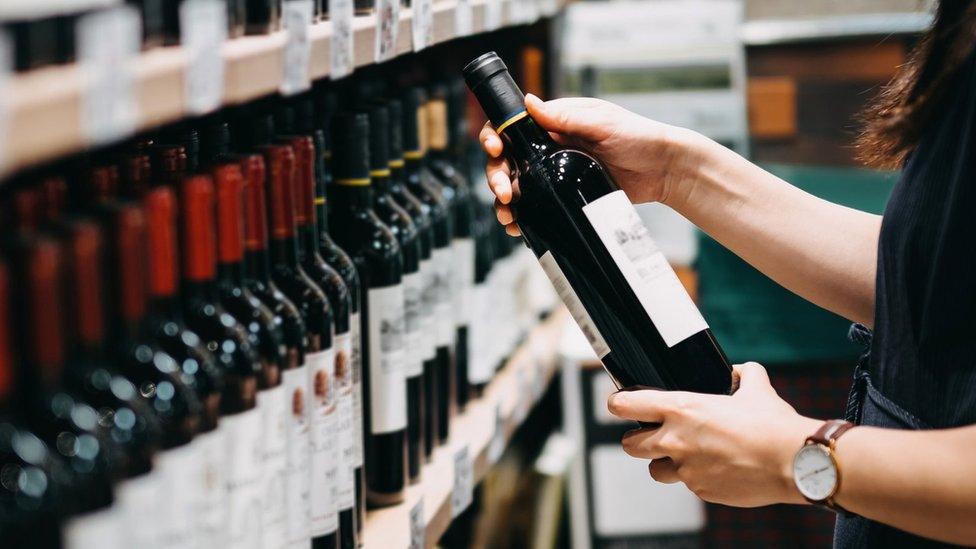
Before minimum pricing, Scottish supermarkets usually had lower alcohol costs than convenience stores
The cost of a unit of alcohol in Scottish supermarkets went up by nearly 18% after minimum unit pricing was introduced, a study has found.
The average price rose from 56p to 66p in the year after minimum unit pricing (MUP) came into effect in May 2018.
Before MUP supermarkets tended to have lower prices than convenience stores.
Public Health Scotland (PHS) found that alcohol costs in supermarkets increased more than smaller shops, meaning that both were at a similar pricing level.
The average price of a unit of alcohol in convenience stores increased from 63p to 67p, a rise of 6.3%.
MUP requires all licensed premises in Scotland to set a minimum price of 50p per unit, otherwise alcohol cannot be sold.
The biggest increases were for ciders and supermarket own-brand spirits, which were previously low-priced relative to their high alcohol content.
Before minimum pricing, these were typically sold for less than 50p per unit.
However, products with small price rises, such as ready-to-drink cans like Dragon Soop and products that decreased in price, such as Buckfast, saw increased sales.
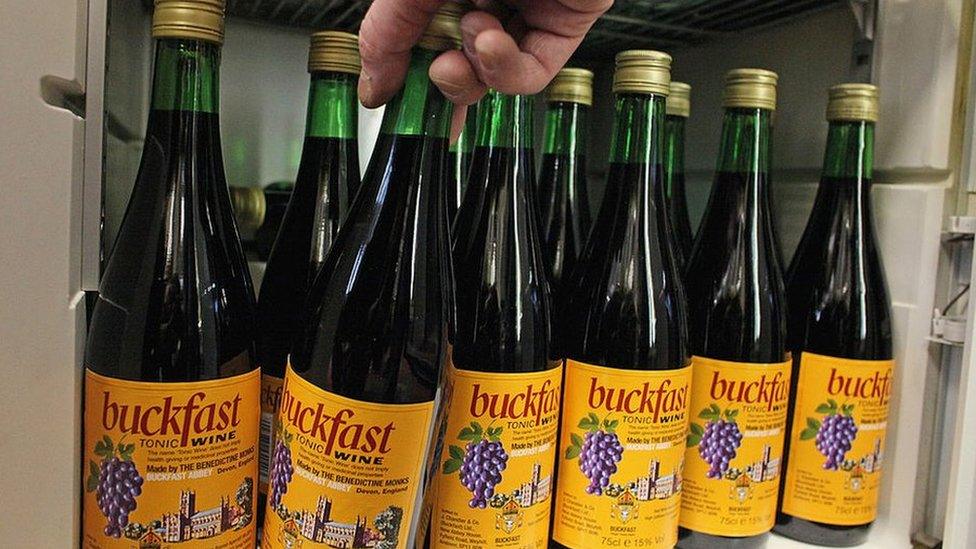
Sales of Buckfast increased in the first year of MUP
In convenience stores, Buckfast fell in price by 3.1%, from 66p to 64p per unit.
According to the PHS, Buckfast sales per-adult increased by 40% in the first year of minimum pricing.
There was a reduction in the amount of ciders and own-brand spirits sold in bottles of one litre and above.
Sales of large multipacks of lager and cider also declined, while sales of smaller multipacks increased.
Dr Karl Ferguson, public health intelligence adviser at Public Health Scotland, said: "In the first 12 months after MUP we found that - especially for products that were below 50p per unit of alcohol - prices went up, the amount sold in larger container sizes went down and sales also declined.
"We also found that because of the price increase, even in instances where the volume of sales went down, the value of sales remained fairly constant or increased."
'Problem drinking'
Scotland became the first country in the world to bring in minimum unit pricing for alcohol in May 2018.
It targeted low-cost, high-strength beverages, seen as a source of problem drinking.
Research by Manchester Metropolitan University last year suggested MUP had a minimal impact on drink-related crime.
In response to the PHS study, Alison Douglas, chief executive of Alcohol Focus Scotland said: "Increasing the price of alcohol is one of the most effective and cost-effective policy measures to reduce alcohol consumption and harm.
"This research shows that people in Scotland respond to price. We have changed what we buy and reduced how much we buy due to minimum unit pricing."
Related topics
- Published12 October 2021
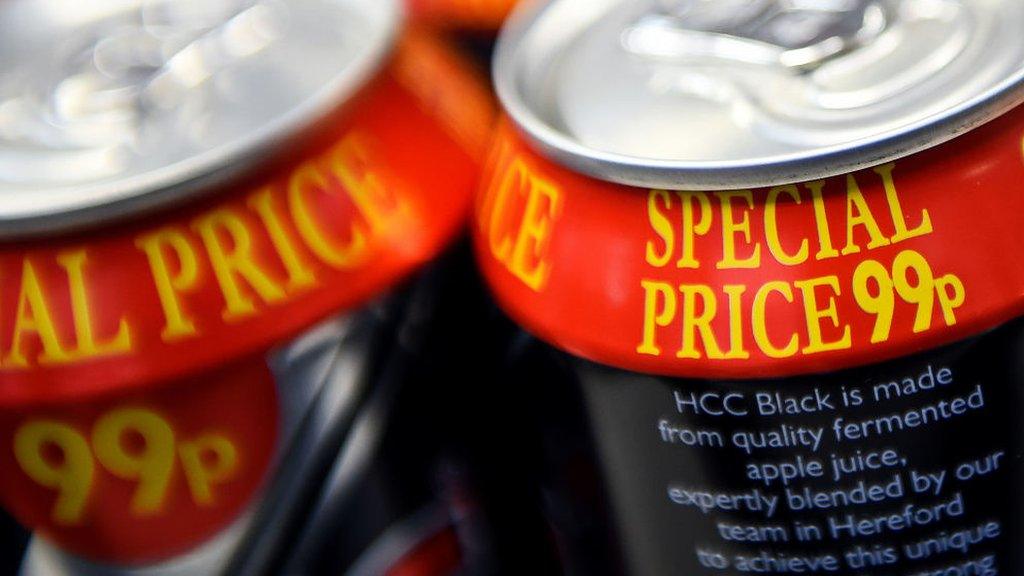
- Published24 November 2020
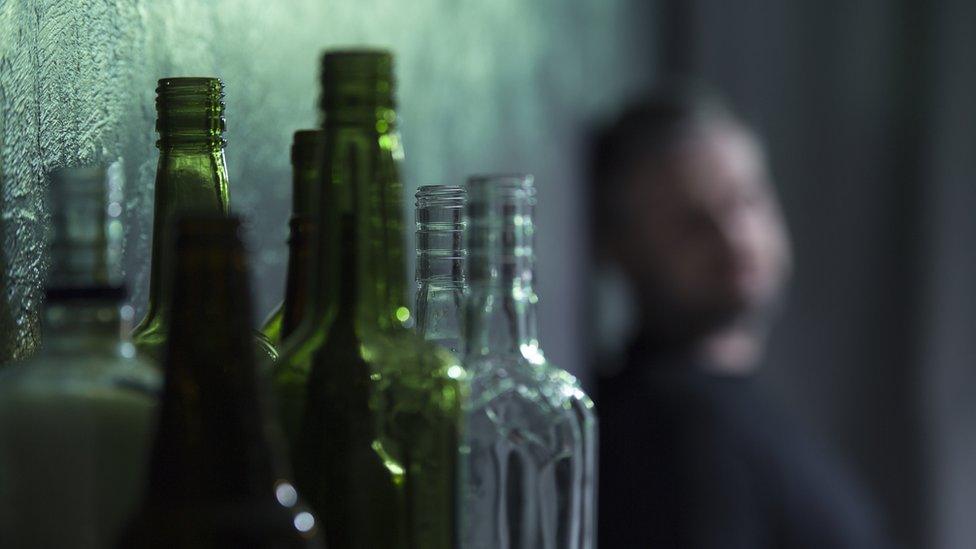
- Published29 May 2021
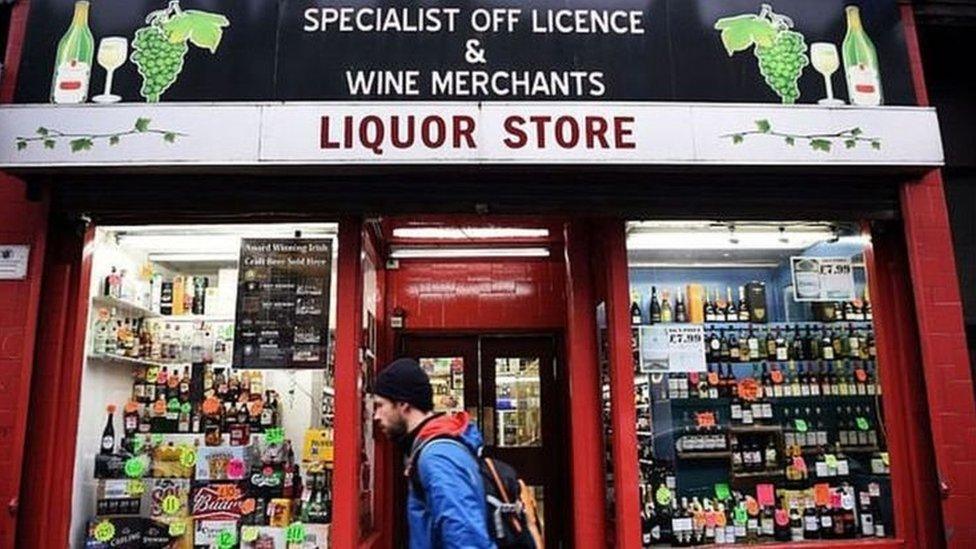
- Published26 February 2018
